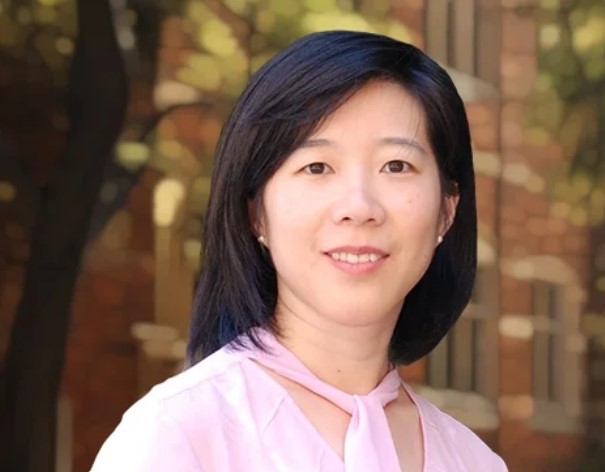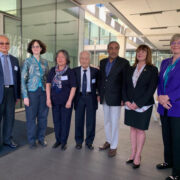Professor Margaret Shih Assumes Role of Department Chair

Anderson’s Neil Jacoby Chair in Management will work closely with Dean Bernardo on faculty-related issues
Effective July 1, 2023, Professor Margaret Shih assumes the role of department chair. She succeeds Professor of Marketing and Behavioral Decision Making Sanjay Sood, who returns to the Marketing area and to his role as faculty director of the Center for Media, Entertainment and Sports. Professor Shih, who holds the Neil Jacoby Chair in Management, is an expert on the effects of diversity in organizations and a member of the Management and Organizations area at Anderson.
She brings to her new role nearly a decade of experience in administrative leadership positions, both at Anderson and more broadly at UCLA. Currently, she serves as special advisor to the UCLA Office of Diversity, Equity and Inclusion, where she also served as associate vice chancellor for research and Bruin engagement from 2019 to 2022. Prior to taking on those leadership roles for the university, she served as senior associate dean of the FEMBA and full-time MBA programs at Anderson, from 2014 to 2018. Throughout, she has continued to teach at Anderson and to undertake research focused on social identity and the psychological effects of stereotypes, prejudice, discrimination and stigma in organizations.
Q: Let’s start with the basics: What role does department chair play and what is the relationship between your office and Dean Bernardo’s office?
As the department chair, I will work with Dean Bernardo’s office on faculty-related issues for our school. This includes overseeing faculty personnel procedures, coordinating with degree programs on staffing their classes, supporting the activities of our program areas and centers, nurturing the groundbreaking research led by our faculty, and other initiatives that align with the mission and strategic directions of our school.
Q: Broadly speaking, what are some of your goals during your term as chair? What would you like to accomplish?
I hope to maintain and build on the excellence of our faculty. We have an incredibly strong faculty at Anderson, with world-class scholars, practitioners and teachers. However, the faculty are not just incredibly accomplished individuals, they are also great people. I have enjoyed getting to know my colleagues and learning about all their varied experiences, research programs and pursuits. During my term, I hope to protect the strengths we have, such as cutting-edge research and a strong community, while, at the same time, working to identify innovations that could further improve life at UCLA Anderson.
Q: How will you bring your personal expertise, scholarship and values to the role? Will your interest in topics like diversity inform how you approach the work?
I guess the perspectives that I would bring to the role would come from my training in social psychology and organizational behavior. My focus on people likely reflects this bias in my training. However, I’m also trained as a social scientist. Thus, I have a great respect for the scientific endeavor — relying on empirical observations and data to inform perspectives and correct misconceptions, while at the same time holding a skeptical and critical eye to the methods of measurement, data collection procedures and inferences drawn from the results.
Q: You’ve held a number of administrative positions over the years, both at Anderson and across campus. How do you balance these roles while also focusing on your scholarship and teaching?
While I have had experience in academic administration, I’m still learning a great deal and I anticipate that this position will be unique in its demands and challenges compared to positions I have held in the past.
I am a strong introvert, but I like people. I enjoy working with people to problem-solve and innovate, and I like learning about people more generally — hearing their perspectives, histories and interests. That is probably why I studied psychology, and why I like administration. Administration is also very rewarding when your activities can make an impact, even if it is just a minor tweak or small improvement. The delay of gratification in administration is much shorter than in research.
However, at the core, I’m a scholar and researcher. My experience in administration has enhanced my scholarship by providing me with greater insights into the issues relating to diversity, equity and inclusion. For instance, I have seen how systems can contribute to different types of inequities, and the many obstacles in bureaucracies that can impede DEI initiatives. The challenge for me now is being able to find the time to study, test and write up these insights.
Source from: UCLA Anderson School of Management
Posted on 07/14/2023





